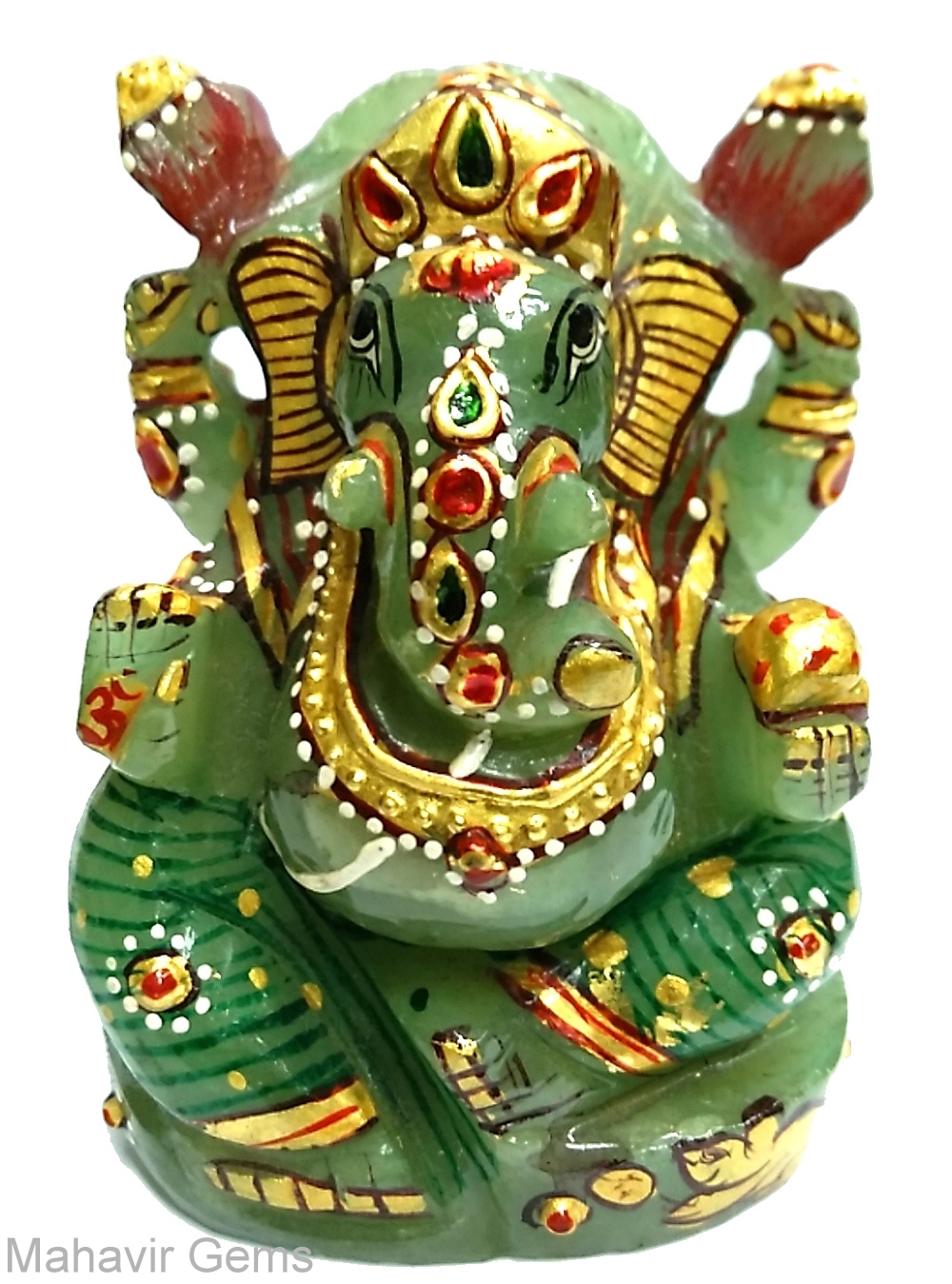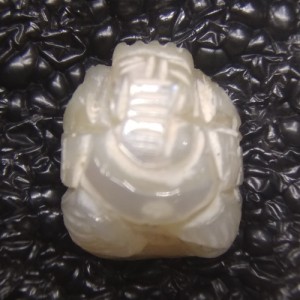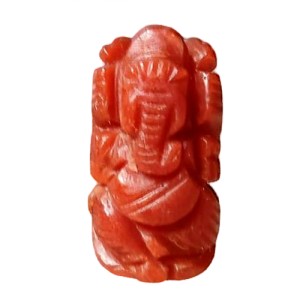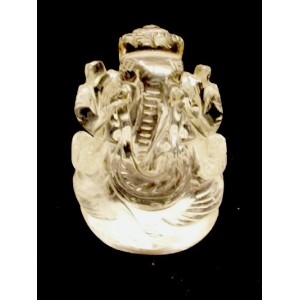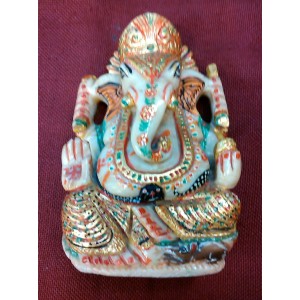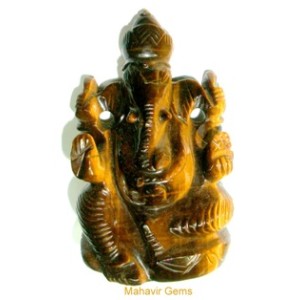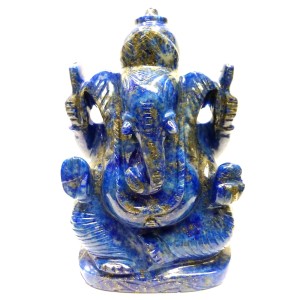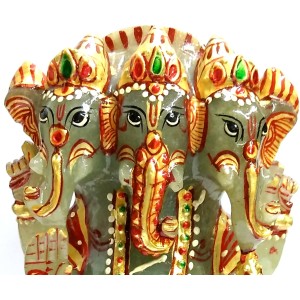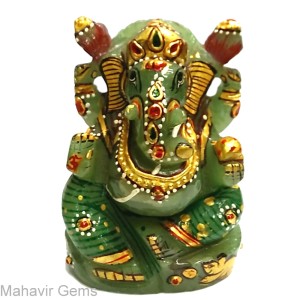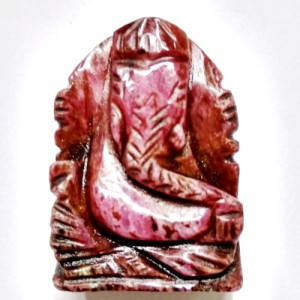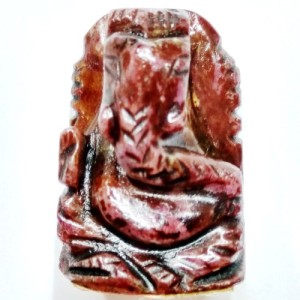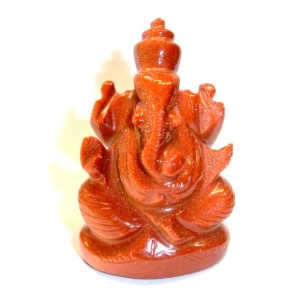Ganesha

We often use our own selected gem rough to make our own special carvings. We also have several carvers working on softer material such as serpentine, aventurine and malachite. The gemstone carvings here are just a small representation of our constantly changing stock. If you collect carvings of a particular theme or gem material send us an e mail and we will send you pictures of what we have. We will try to keep this section as up to date as possible so most of the carvings will be available for purchase.
Ganpati Bappa Morya
Amazing
facts of GANESHA
Did you know there are 250 temples of
Ganesha in Japan.
In Japan, Ganesha is known as 'Kangiten',
the God of fortune and the harbinger of happiness, prosperity and good.
An Oxford publication claims that Ganesha
was worshipped in the early days in Central Asia and other parts of the globe.
Ganesha statues have been found in
Afghanistan, Iran, Myanmar, Sri Lanka, Nepal, Thailand, Laos, Cambodia,
Vietnam, China, Mongolia, Japan, Indonesia, Brunei, Bulgaria, Mexico and other
Latin American countries.
It means the cult of Ganesha was prevalent
all over the world in ancient times.
Ganesha
in Europe, Canada and the USA
Ganesha's idol and paintings are exhibited
in all the important museums and art galleries of all the European countries
especially in the UK, Germany, France and Switzerland.
Ganesha idols and paintings(as goodluck
charm) are also present in thousands of houses/offices of successful
business/writers/artists in all the European countries and in Canada and the
USA. Recently a figure of Ganesha was unearthed in a village near Sofia,
Bulgaria. Like Indians, the Romans worshipped Ganesha before any work was
begun.
Irish
believe in Ganesha luck.
The embassy of Ireland at New Delhi became
the first European embassy to invoke the blessings of Ganesha by installing a
statue of Ganesha at the main entrance of the embassy.
*Silicon Valley in USA selects Ganesha as
the presiding Deity of cyberspace technology *
“Ganesha is the God of knowledge and
Ganesha's vehicle is the mouse and, as you know, for software engineers the
mouse is the vehicle that they use to take their ideas and innovations from one
place to the other.” Hence it was decided by the computer industry association
to select Ganesha as the presiding Deity of Silicon Valley.
Ganesha
on Greek coin.
Early images of an elephant headed Deity,
including those on an Indo-Greek coin and elsewhere, dating between the first
and third centuries BC, represent Ganesha as the demi God Vinayaka.
Indonesia
Currency notes.
One of the Indonesian currency notes
carries the picture of Ganesha.
Vedic
origin of Ganesha.
10,000 year old secret of success.
Devotees of Ganesha make reference to his
Vedic origin which is around 10,000 years old to push his antecedents back in
time. The Vedas have invoked him as
'Namo Ganebhyo Ganapati' (Yajurveda, 16/25), or remover of obstacles, Ganapati,
we salute you. The Mahabharata has elaborated on his personal appearance and
Upanishads on his immense power. “Scholars say artifacts from excavations in
Luristan and Harappa and an old Indo-Greek coin from Hermaeus, present images
that remarkably resemble Ganesha”.
(“Robert Brown in his Book “Ganesha: Studies of an Asian God”: State
University of New York Albany).
#Ganesha #Japan #happiness #prosperity
#good #luck #oxford #malachite #emerald #sapphire #Ruby #Pearl # #aventurine #quartz
#rose #rock #crystal #goldstone #tiger’seye #sepentine #coral #currencies #Indonesian
#Coin #Greek #Irish #Afghanistan #Iran #Myanmar #Sri #Lanka #Nepal #Thailand #Laos #Cambodia
#Vietnam #China #Mongolia #Japan #Indonesia #Brunei #Bulgaria #Mexico #Latin #American
#countries
Save21%
Ganesha Carved in Pearl 03.67carats
This is unique handcrafted 3.67 carats / 4.03 Ratti cultured Pearl carved into beautiful Lord Ganesh..
Save14%
Ganesha in Natural Red Coral 5.91 Carat
The idol is hand-carved and is made of polished Natural Red Coral 5.91 Carats / 6.50 Ratti . It..
Ganesha in Natural Red Coral 8.92 Carat
The idol is hand-carved and is made of polished Natural Red Coral 8.92 Carats / 9.80 Ratti . It..
Save19%
Elephant Head God (Ganesha) in Natural Rock Crystal
The idol is hand-carved and is made of polished Natural Rock Crystal . It shows Ganesha, the el..
Save16%
Elephant Head God (Ganesha) in Natural Serpantine.
You are watching a wonderful piece of Art and not just a product perfectly decorated..
Save14%
Elephant Head God (Ganesha) in Natural Tiger's Eye
The idol is hand-carved and is made of polished Natural Tiger's eye . It shows Ganesha, the elephant..
Save33%
Elephant Head God ( Lord Ganesha) in Natural Lapis Lazully Gemstone 2780 Carats
You are watching a wonderful piece of Art and not just a productPerfectly decorated b..
Save37%
Elephant Head God ( Triple Head Ganesha) in Natural Serpantine Gemstone
You are watchinga wonderful piece of Art and not just a productPerfectly decorated by hand..
Save25%
Elephant Head God (Ganesha) in Natural Serpantine Gemstone
You are watching a wonderful piece of Art and not just a product perfectly decorated..
Save21%
Lord Ganesha in Natural Ruby Gemstone 47.91 Carats
Perfectly Carved by hand, Lord Ganesha carved from a single piece of Natural Ruby&nbs..
Save20%
Lord Ganesha in Natural Ruby Gemstone 75.75 Carats
Perfectly Carved by hand, Lord Ganesha carved from a single piece of Natural Ruby&nbs..
Save20%
Elephant Head God (Ganesha) in Brown Goldstone.
The idol is hand-carved and is made of polished Brown Goldstone. It shows Ganesha, the elephant head..
